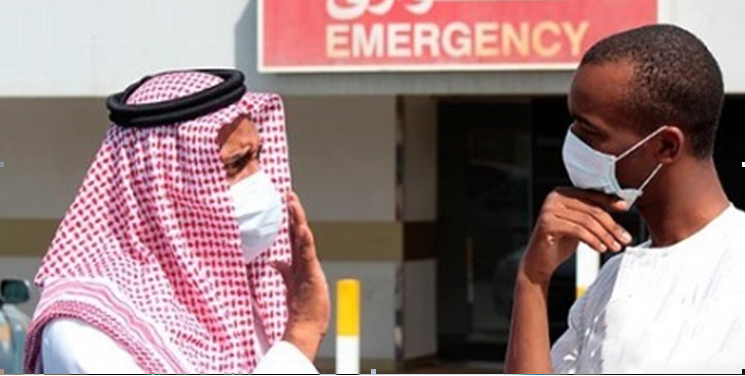
China said on Friday a 44-year-old South Korean man had tested positive for Middle East Respiratory Syndrome (MERS), China's first confirmed case, but that it had not found any symptoms in 38 people who had been in close contact with him. Health authorities in the southern Chinese province of Guangdong said it was likely the disease would spread as the patient had taken a bus, crossed a busy border checkpoint from Hong Kong and stayed in a hotel before being taken to hospital.
First identified in humans in 2012, MERS is caused by a coronavirus from the same family as the one that triggered China's deadly 2003 outbreak of Severe Acute Respiratory Syndrome (SARS). There is no cure or vaccine. "The virus appears to be circulating widely throughout the Arabian Peninsula," the World Health Organization (WHO) said on its website. "All recent cases that have been reported outside the Middle East first developed infection in the Middle East."
WHO said on Friday 10 people in South Korea were confirmed as having MERS, but there had been no human-to-human spread. The UN agency said that it was not recommending screening of passengers or that travel or trade restrictions be imposed on South Korea due to the outbreak.
Later on Friday, South Korea's health ministry said two more patients were confirmed to have been infected, both of whom had been in the same hospital ward as the initial confirmed cases. The patient in China, in isolation in hospital in the southern city of Huizhou, had a fever and a chest examination showed possible pneumonia, China's National Health and Family Planning Commission said.
The man, who is a son of another patient who was confirmed last week to have been infected in South Korea, had traveled to Huizhou after first arriving in Hong Kong on Tuesday. Hong Kong health authorities said 29 people had been in close contact with the Korean in Hong Kong.
本时文内容由奇速英语国际教育研究院原创编写,禁止复制和任何商业用途,版权所有,侵权必究!
1.Why did the health authorities think the MERS would spread?
A Because the wan was from South Kerean.
B Because 38 person had contacted with him
C Because the man was coming from Hong Kong
D Because the man crossed a busy checkpoint
解析:选B。B。细节理解题。根据文章第1段第2句的Health authorities in the southern Chinese province of Guangdong said it was likely the disease would spread as the patient had taken a bus可以得知有患者曾乘坐公交,所以一定有很多人和他接触过,因此感染的人数会增多。
2.Where did MERS first come from?
A The California Peninsula.
B The Middle East
C South Korea.
D Huizhou.
解析:选B。B。细节理解题。根据第2段最后1句的All recent cases that have been reported outside the Middle East first developed infection in the Middle East可以得知,在中东地区该疾病最先出现。
3.According to WHO, _______.
A the disease was spread human to human
B more cases of MERS will be found in South Korea
C people should avoid going to South Korea
D trades between South Korea should be continued.
解析:选D。D。推理判断题。根据第3段第2句的The UN agency said that it was not recommending screening of passengers or that travel or trade restrictions be imposed on South Korea可以得知世界卫生组织不推荐贸易限制,因此对韩国的贸易可以继续。
4.How many people were infected with MERS in all?
A 8
B 10
C 12
D 16
解析:选C。C。细节理解题。根据第3段第1句的WHO said on Friday 10 people in South Korea were confirmed可以得知先是10名患者确诊;另外第4段第1句的Later on Friday, South Korea's health ministry said two more patients were confirmed可知后来还有两名确诊;因此总共有12名病人感染。
5.What did China do with the patient from South Korea?
A Keeping him traveling in Hong Kong without paying.
B Sending him to isolation hospital to prevent spreading
C Providing him with medicine to cure of his disease
D Asking him to find people in close contact with him
解析:选B。B。细节理解题。根据第4段第2句的The patient in China, in isolation in hospital in the southern city of Huizhou可知中国政府所做的是让那个人在医院进行隔离治疗。